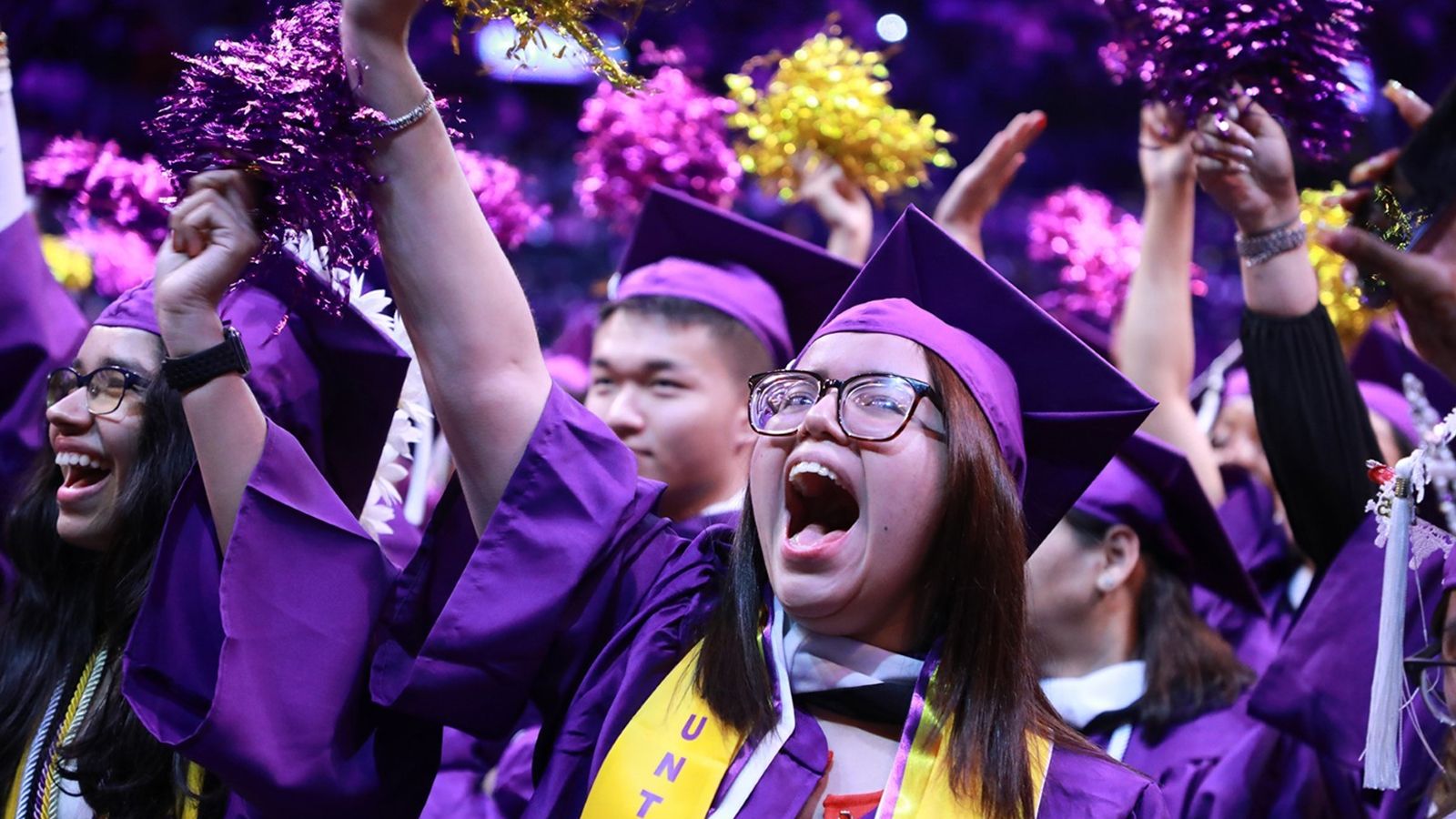Hunter College’s trademark diversity lit up Barclays Center May 30 as the 155-year-old school celebrated its 228th Commencement — graduating more than 5,000 students and spotlighting Hunter as a beacon of social mobility, especially for immigrants.
“This vibrant, diverse community of scholars and learners and professionals and community partners makes Hunter and our home of New York City the place to be,” said Hunter President Nancy Cantor to the more than 3,300 graduates and family members who filled the vast Brooklyn stadium.
Cantor praised graduates for their fortitude, talents, and dreams and said that their education would enable them to make world-changing impact
“You are the ones we have been waiting for,” Cantor said, adding, “So, let’s give this graduating class, who will take their Hunter degrees, built on their diverse lived experiences, out into a world that needs a lot of change-making, a big round of hearty and hopeful applause!”
Cantor said many students not only had overcome adversity to get their degrees but also lifted their fellow students along the way.
“What more can we ask than to see our students, as students themselves, paving the way for others to succeed along with them?” she asked.
Cantor cited Frank Mora — who dropped out of high school at 15 but later returned to school for a psychology degree and a business certificate, starting the Hunter chapter of the Association of Latino Professionals for America — and tahda queer, the winner of many prestigious scholarships, who advocated for queer students in STEM.
Provost Manoj Pardasani emphasized statistics in underscoring Hunter’s diversity and promise. The Class of 2025 was the largest ever — 5,280 students — he said, noting that Hunter is home to about 22,000 undergraduates and 5,500 graduate students, most living in the city’s five boroughs, and many first-generation college students and as well as first-generation immigrants.
“Hunter’s students exemplify New York — our grit, our smarts, our cosmopolitan yet small neighborhood ethos with its urban mix of newcomers and those who have been here for generations,” CUNY Chancellor Félix V. Matos Rodríguez told the graduates. “Our desire to be different and edgy and true to ourselves, our incredible welcomeness, and quintessential drive to be No. 1 and win. All this is New York and all this is you.”
CUNY Trustee, Commissioner on Aging, and Hunter alumna Lorraine Cortés-Vázquez ’75 noted that many graduates were immigrants and had benefited from a family decision to pursue the American Dream. She told graduates that tough times for diversity and immigrants demanded that they “hang on” to their values and principles and “dream big.”
Hunter conferred an honorary doctoral degree on the keynote speaker, activist, professor, and public intellectual Loretta J. Ross, calling her a “courageous advocate, insightful scholar, ingenious movement maker [and] one of our nation's most eloquent voices on reproductive justice and human rights.”
Ross spoke about her 50 years as a civil-rights advocate and said that intolerance on the left is injurious to the cause.
“Don't have radical analysis without radical love practices, too,” she said. “We need to learn to handle our passion with compassion, because it’s not enough to be right; you also have to be kind. People who forget that lesson show themselves to be the amateurs that they are. Because everybody who has struggled against oppression effectively has understood that how you do the work is as important as the work that you do you.”
Hunter’s valedictory speaker, Natalia Pozdnyakova (one of 17 Hunter grads with a perfect 4.0 GPA), also spoke of the immigrant experience.
“Hunter College was more than just a school,” she said. “It became a part of my generational story. I grew up in an immigrant household where the idea of going to college wasn’t just encouraged, it was expected. Education was the promise my family carried with them across oceans and borders.”


